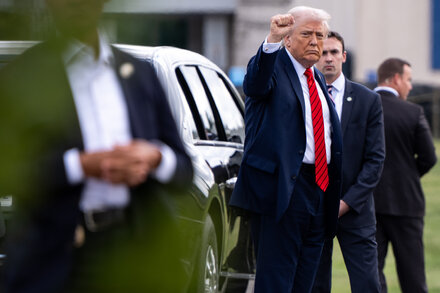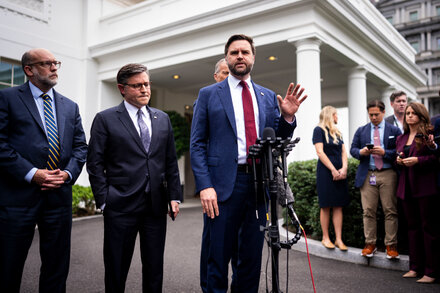A distinct political dichotomy is emerging around former President Donald Trump, outlining a potential future administration marked by a “split screen” approach. This vision suggests a leader simultaneously pursuing international diplomacy

A distinctive political dichotomy is emerging around former President Donald Trump, delineating two potentially contrasting approaches that could define a future administration. This “split screen” perspective suggests a leader who might simultaneously pursue a path of international diplomacy and de-escalation while engaging in a vigorous campaign of political accountability and policy enforcement domestically.
The Peacemaker Abroad: A New Diplomatic Front?
On the international stage, proponents of this view anticipate a return to, or expansion of, the unconventional diplomatic strategies witnessed during Trump’s first term. This approach often prioritizes direct negotiation, bilateral agreements, and a skepticism towards long-standing multilateral institutions and foreign entanglements. The aim, as articulated by some of his advisors, would be to resolve protracted conflicts and reduce American military commitments abroad.
“My focus has always been on putting America First, which means avoiding endless wars and seeking peaceful resolutions,” a former Trump administration official, often reflecting the former president’s views, has previously stated. “We believe in strong borders and strong defense, but also in dialogue when it serves our national interest to bring peace.”
Past initiatives, such as the Abraham Accords—which normalized relations between Israel and several Arab nations—are often cited as examples of this transactional and often surprising foreign policy. A future administration might seek to replicate such breakthroughs, potentially engaging with adversaries or facilitating agreements in complex geopolitical theaters, driven by a perceived urgency to de-escalate global tensions or rebalance international power dynamics.
The Retribution Campaign at Home: A Focus on Accountability
Conversely, the domestic outlook for a potential future Trump presidency is often characterized by a determined push for accountability, which some critics describe as a campaign of retribution. Public statements and campaign rhetoric have consistently emphasized the need to address what the former president and his allies perceive as political persecutions, bureaucratic overreach, and a “weaponization” of government institutions against him and his supporters.
“We will clean house, hold the corrupt accountable, and ensure justice for every American,” former President Trump has stated on multiple occasions, outlining a vision for domestic policy that prioritizes investigations and reforms targeting perceived adversaries within the government and political establishment. “No one is above the law, especially those who have abused their power.”
This domestic focus could translate into significant personnel changes across federal agencies, a renewed emphasis on investigations into political opponents, and a robust implementation of policies designed to dismantle what he terms the “deep state.” Such actions would likely aim to consolidate executive power and reshape the federal bureaucracy to align more closely with the president’s agenda, potentially leading to heightened political tensions and legal challenges.
The simultaneous pursuit of these two seemingly disparate paths—a global peacemaker and a domestic enforcer—presents a complex and potentially volatile prospect. Observers suggest that the success of such a strategy would depend on its execution and the capacity to manage the inherent contradictions between projecting an image of international stability and fostering domestic political upheaval.
Source: Read the original article here.





